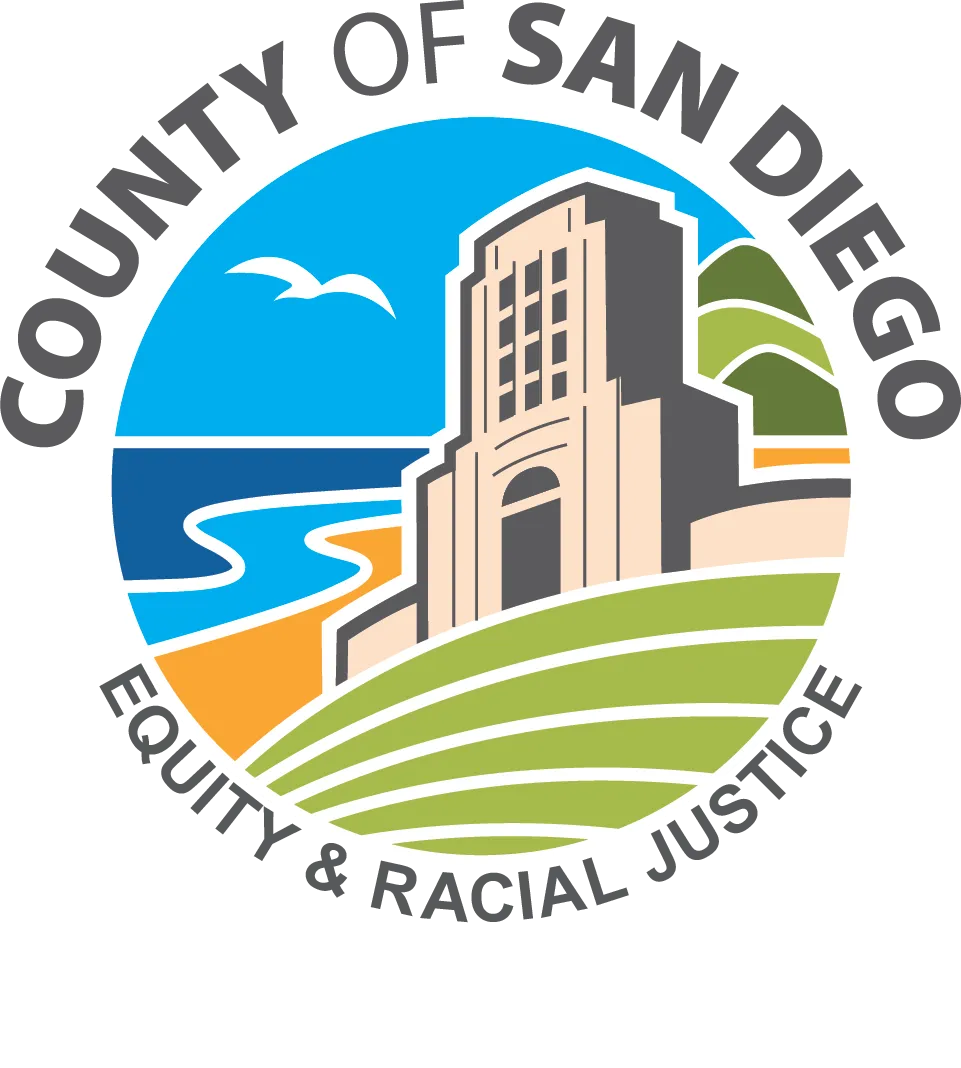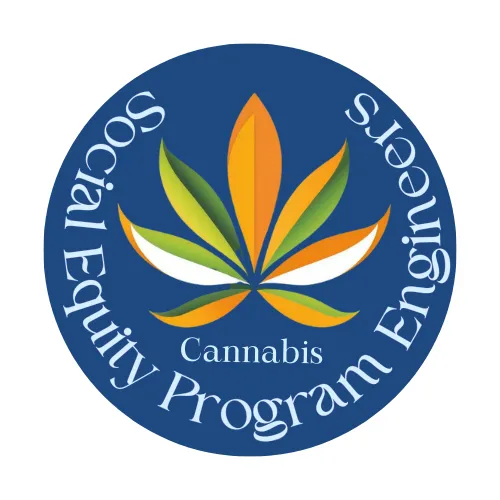
Social Equity Program Eligibility Verification Application
Managed by Cannabis Education Project & Social Equity Program Engineers
Become a Verified Cannabis Equity Applicant
Take the first step towards community empowerment.
Notice:
As of August 23rd, 2024 at 11:59:59PM PST the application window for this program is closed.
Application Cost:
There is no cost to apply.
Eligibility:
Applicants must meet requirements that involve income, and cannabis related arrests.
Follow These Steps to Apply:
1: Check your eligibility.
To be eligible, an equity applicant must be at least 21 years of age at the time of application and meet criteria for Tier A OR criteria for Tier B.
Tier A
Incarcerated for San Diego County arrest or conviction for any crime under the laws of the State of California or United States related to the sale, possession, use, manufacture, or cultivation of Cannabis that occurred prior to November 8, 2016.
Tier B
Deported, Arrested, or Convicted: In San Diego County for any crime under the laws of the State of California or United States related to the sale, possession, use, manufacture, or cultivation of cannabis that occurred prior to November 8, 2016, AND Low Income
– 80% or below of the Area Median Income (San Diego County) determined by US Department of Housing and Urban Development (HUD).
You should know...
The County of San Diego adopted a Social Equity Program (SEP) to promote equitable ownership and employment opportunities in the cannabis industry for individuals and communities most impacted by cannabis criminalization and the war on drugs.
Through the SEP, eligible applicants and businesses are authorized to participate in various licensing, technical assistance, and business development programs.
The SEP Applicant Eligibility Verification application documents will be used to determine eligibility for certain programs, such as property assistance and the Fee Deferral Program, which are components of the County's Social Equity Program.
2: Gather your documents.
Documents can be uploaded as part of your application. All documents should be clear and legible.
You'll need to provide two forms of ID and documentation proving your arrest, conviction, deportation, or incarceration for a cannabis related charge in San Diego County before November 8, 2016. At least one form ID should be a government issued photo ID.
If you weren't incarcerated but were deported, arrested, or convicted in San Diego County for a cannabis-related crime, you also need to show that you were low-income (earning 80% or less than the median income) for any year in the last ten.
Expired IDs will not be accepted.
Here’s a list of acceptable IDs:
Driver's License
State Identification Card
Passport
Social Security Card
Birth Certificate
Department of Corrections Identification Card
Release Documents
Military ID Card
Veteran Health Identification Card (VHIC)
Tribal Identification Card
Permanent Resident Card (Green Card)
Employment Authorization Card
Global Entry Card
Student ID Card
Medicare Card
Health Insurance Card
Public Benefits Card
Library Card
Credit and Debit Cards
Transportation Worker Identification Credential (TWIC)
Professional Licenses
Additionally the following documentation will qualify as ID:
Financial records reflecting lease or mortgage payments that are dated and contain an applicant's name and address.
Records reflecting government housing or other assistance that are dated and contain an applicant's name and address.
Utility bills, car registration, employment records, insurance documents or government issued documents that are dated and contain an applicant's name and address.
Certified education records from a school, including transcripts or enrollment documents, which might reflect an applicant's identification.
You should know...
For the purposes of the SEP, a California cannabis arrest or conviction is an arrest or conviction in San Diego County, California for any crime under the laws of the State of California or the United States relating to the sale, possession, use, manufacture, or cultivation of cannabis that occurred prior to November 8, 2016.
It includes arrests by federal authorities in San Diego County, California and convictions in federal court in San Diego County, California.
Qualified documentation for California cannabis arrest, conviction, or deportation:
Court records reflecting an Applicant's California cannabis arrest, conviction, or Deportation.
Government records reflecting an Applicant's California cannabis arrest, conviction, or Deportation.
If an applicant does not possess the approved documents listed here, he or she may submit other documents he or she believes satisfies one or more of the eligibility criteria.
The County will review such documents on a case-by-case basis and make a determination of whether or not they are sufficient. The department of Equity & Racial Justice will not accept declarations or affidavits as proof of an applicant's eligibility.
You should know...
To qualify as Low Income for the purposes of the SEP, an applicant's gross and total household income must fall within the specified income limits for the relevant fiscal year, as outlined in the chart linked here.
Household income is determined by the total income received before deductions for taxes and other items. If your filing status is "Married Filing Separately," you must also provide a copy of your spouse's Federal tax return or your spouse's Internal Revenue Service (IRS) Verification of Non-filing.
Approved supporting documentation for income include the following:
Federal Tax Return: Provide a copy of your Federal tax return for the relevant fiscal year as referenced in the chart.
IRS Verification of Non-filing: If you did not file a return for the fiscal years listed in the chart, you must provide proof from the IRS using the IRS Verification of Non-filing. To obtain this verification, use IRS Form 4506-T to request a Verification of Non-filing transcript or Form 1040-series transcripts, available free of charge.
For more information, visit www.irs.gov/form4506t
Additionally the following documentation can be helpful in determining low income eligibility:
Two months of paystubs
General Assistance Programs
Supplemental Nutrition Assistance Program (SNAP)/Previously Food Stamps
Unemployment Benefits Statement
Medi-Cal
CalWORKs/Previously Welfare
Supplemental Security Income (SSI)
Social Security Disability
Low Income Home Energy Assistance Program (LIHEAP)
Housing Choice Voucher/Previously Section 8
Free School Lunch Program
We're here to help!
Call, email or use the webchat to reach us!
Phone: (619) 356-0377
Email: [email protected]
Frequently Asked Questions (FAQs)
What is the Cannabis Equity Program?
The Cannabis Equity Program aims to help people from communities negatively impacted by the failed War on Drugs. It offers support and resources to those interested in entering the cannabis industry.
Who can apply to be part of this program?
Anyone who is 21 years or older and was affected by cannabis-related arrests, convictions, or incarcerations in San Diego County before November 8, 2016. You must also meet certain income requirements if your application is based on non-incarceration scenarios.
How do I submit my application?
Fill out the application form on our website, attach all required documents, and submit it digitally through our portal. You will receive a confirmation email once your application is successfully submitted.
What happens after I submit my application?
Your application will go through a review process where your eligibility and documents are verified. You'll be contacted if there's anything more needed from you. Finally, you will be informed whether your application was approved, denied, or if additional information is required.
How long does it take to process my application?
The processing time can vary, but we aim to review and respond to all applications as quickly as possible. Typically, you can expect an answer within a few weeks.
What if my application is denied?
If your application is denied, you will receive information on why it was denied and details on how to appeal the decision or steps you can take to reapply.
What kind of support does the program offer if I’m accepted?
Accepted applicants receive various forms of support including access to business development resources, legal advice, financial planning services, and educational workshops tailored to the cannabis industry.
Is my information kept confidential?
Yes, we prioritize the privacy and security of your personal information. All data submitted through our application process is kept confidential and used solely for the purpose of determining eligibility and providing support within the program.


